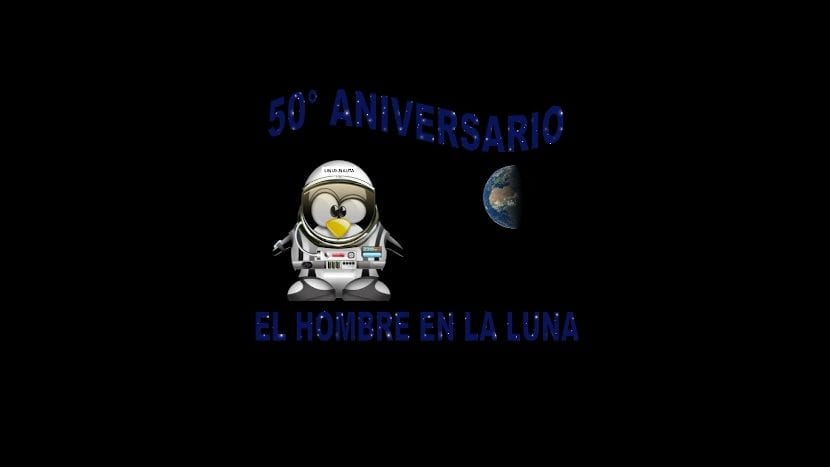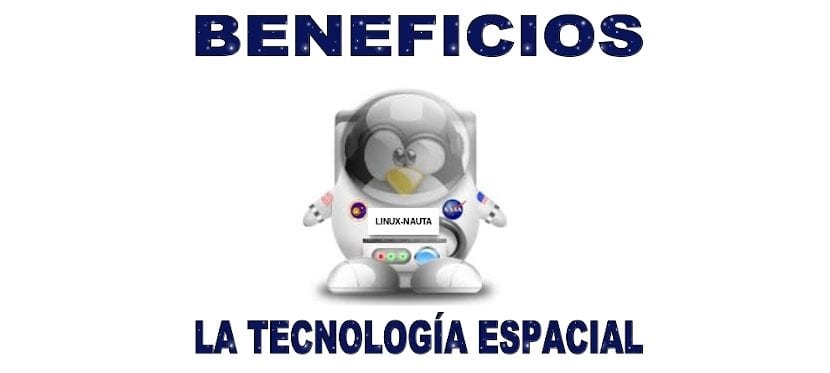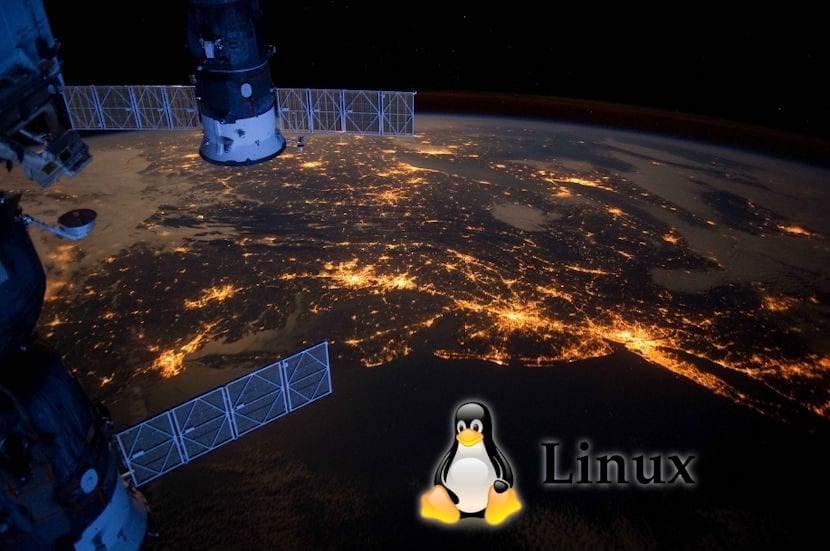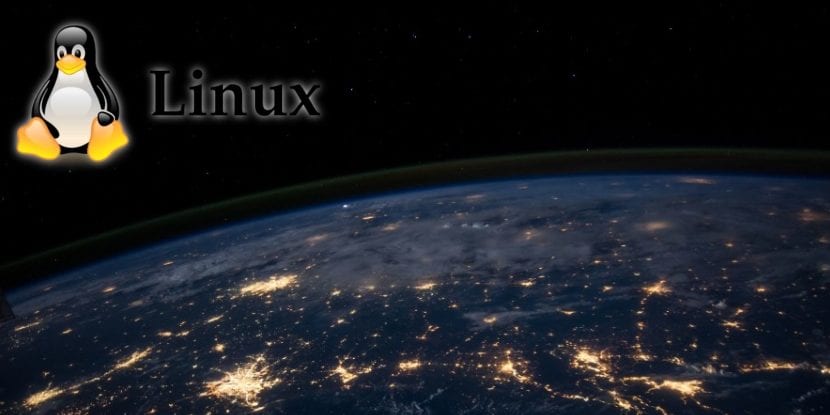
Space Technology and Free Software: 50 Years of the Moon Arrival
Today is a special day worldwide, since the «50° Aniversario del primer alunizaje tripulado», that is, of the «50 años de la llegada física del hombre a la Luna». And of course the «Tecnología Espacial» Like any other technology, then it has implications or civil uses, which provide many subsequent benefits to humanity, especially in the field of Information and Communication Technologies, that is, in Informatics and Computing in general.
The positive effects of «Tecnología Espacial» For the benefit of humanity there have been many, most of them from the most developed countries, and to a lesser extent of the rest, a small handful of developing countries, but the important thing is that the benefits achieved thanks to the investment made in the «Carrera Espacial» There have been many and in different areas, and they will continue to expand in the future, due to the multiplying factor that scientific and technological development has on human well-being.

Benefits of Space Technology
Since la «Carrera Espacial» began more than 50 years ago, especially as a result of the rivalry of the «guerra fría», that is, as a tough competition between «los Estados Unidos y la Unión Soviética» during the period of «1957 a 1975», «Tecnología Espacial» created has given us short, medium and long term benefits.
Many of them, directly associated with technological development already have commercial uses and with many years of exploitation (civil use), others will have access to the service of society in the near future. Others, in the medium and long term, which we do not know for now, due to the often secret nature of the technologies involved in the scientific missions underway, but which are there close to being revealed.
It is important to bear in mind that within the «Ciencia Espacial» there are three (3) fields, which are the ones that little by little are leaving us the knowledge that later results in benefits for humanity. These are: «la investigación del espacio profundo», which includes the study of the universe itself, and includes certain disciplines such as astronomy and astrophysics.
«La exploración de los cuerpos celestes de nuestro cercano entorno»i.e. all planetary objects in and around our solar system, and «la realización de experimentos en condiciones de gravedad efectiva reducida» or simply "micro-gravity."
Services
However, to this day we can mention the following benefits that «Tecnología Espacial» He has left us, already in use:
- Sports shoes: Thermal insulation and cushioning technology have made different types of modern shoes possible.
- Helmets: The protection and insulation technologies of space helmets are now applied in the helmets of cars, motorcycles, sports and industrial safety.
- Sunglasses: Sunlight filtering and anti-scratch technologies from space helmet visors are now being used in civilian lenses for cosmetic or medicinal use.
- Water filters: The technologies for filtering and purifying water from spacecraft are now used in industries and homes, especially those related to the use of activated carbon filters.
- Artificial heart: The technologies of the fuel pumps of the space shuttles are used in hospitals, they are used to momentarily supply the damaged organ until its total replacement.
- Artificial satellites: These and their effects on current Telecommunications or the use of geo-positioning technologies are direct products of space technology.
- Fire fighting clothing: The anti-flammable technologies in spacesuits are now used in the suits of firefighters, professional motorcyclists, racers or stuntmen from action movies, and even the military.
- Cordless tools: The technologies created by the space industry to provide small, functional and autonomous equipment to astronauts, are now used to create tools such as drills or battery-powered screwdrivers, to avoid the use of power cables.
Other benefits
Other no less important benefits were:
- Infant milk
- Memory foam
- The international rescue system
- Automotive aerodynamics
- The bridges and anti-earthquake buildings
- The security cuts of the airport runways
- Food safety standards
- The anti-gravity treadmill
- Flexible airgel
- Digital flight systems
- Gigapan photography technology
- Thermal blankets for emergencies
- Anti-frost technology
- Therapeutic devices to maintain blood circulation
- Crop control technologies
- The Software for scientific data management
Among many others.

Space Technology and Free Software
Home
Many of us already know that some of the fundamental principles of «Software Libre (SL)», arose from philosophies of cooperation and sincerity, implemented in various academic fields and scientific research. One of these places was precisely the fields of space research.
Since in the middle of the space race, over the years «1958-1960» almost all software was mass produced by academics and corporate researchers in collaboration, and the space research centers were immersed in this movement.
At that time, software was not properly seen as a product. So that, that «Sistemas Operativos (SO)» they were widely distributed and maintained by communities of users and creators. El «Código Fuente (CF)»Almost everything was available and distributed among all the users involved, who could modify it, to be able to fix programming errors or add new functionalities, if necessary.
News
For now, the «Software Libre y de Código Abierto» inside of the «Proyecto Espacial» is present in almost the entire ecosystem, its foundations, fully dedicated to space exploration. Which leaves the great advantage or possibility of being able to allow people and organizations to collaborate to achieve common objectives with a minimum of structures and barriers.
Meanwhile, the «100% de los 500 principales súper-ordenadores funcionan con alguna forma de Linux», Many High Performance Computing Systems that are used for space research and first commercial space computer that is on board the International Space Station is with Linux.
Future
To paraphrase«Yan Fisher, Evangelista Global (Global Evangelist)» of the Red Hat emerging technologies team, an American multinational supplier of «Software Libre», who has left us ideas such as:
The current collaboration between the participants is based on transparency and open standards, and aims to develop and deploy new technologies for different aspects of space travel, which contribute to lunar settlement and further exploration of the solar system.
The new ecosystem of space exploration must be built on the basis of sharing information and contributing to the source of common knowledge, in a very similar way to how an open source software ecosystem works, since this works in favor of the fulfillment of the objectives commons and collaboration between the nations involved.
We can affirm that el «Software Libre y de Código Abierto» can help make possible the achievement of reaching the last corner to be explored through a «Misión Espacial» complete with open source technology, including up to the use of «hardware abierto» o «plataformas libres» complete.

If you want to read another interesting article on our Blog, related to the subject, we invite you to read the following call «Un pequeño paso para la NASA, un gran paso para el Software Libre» or you can visit this very useful external link on the matter touched, called «Code NASA».
Conclusion
Maybe for him «100° Aniversario» of this date, the «Tecnología Espacial» grab us celebrating with achievements like: The Discovery of planets with habitable atmospheres, ways of life basic or complex, smart or not.
Tourist space travel to the closest celestial bodies in the solar system, especially the Moon and Mars, Sub-light speed automated ships or lighting, robot scouts with great artificial intelligences, among many other achievements and benefits.
Anyway, we look forward to what the future of the «Tecnología Espacial».
A very interesting article as always Linux Post Install
I am convinced (without any proof) that free software was used by NASA, I imagine in this case to achieve greater autonomy from third-party companies that could compromise their privacy and therefore have direct control of the use made of that software Without depending on anyone. In fact, it is an element that today continues to define large projects such as space.
Thank you for your contribution and comment, Arazal. How we have been able to see the SL on more than one occasion throughout its existence has contributed to the development of many technological areas of humanity, including space.
Let's hope that in the near future, both the space industry and society as a whole will adopt the philosophical principles of the Free Software Movement for the real benefit of all, and not with a use thinking of benefits or hidden traps for all.
Very good contribution. The feat of the landing of man on the moon and the future of space exploration is directly related, without a doubt, to free software. Furthermore, I dare to say that scientific development and the great challenges of the present and future times cannot be tackled without the contribution of free software.
Long live free software! Long live Gnu Linux!
Thanks for your comment, Alexandros2000. And we support you with respect to Viva free software! Long live GNU / Linux! Regards.